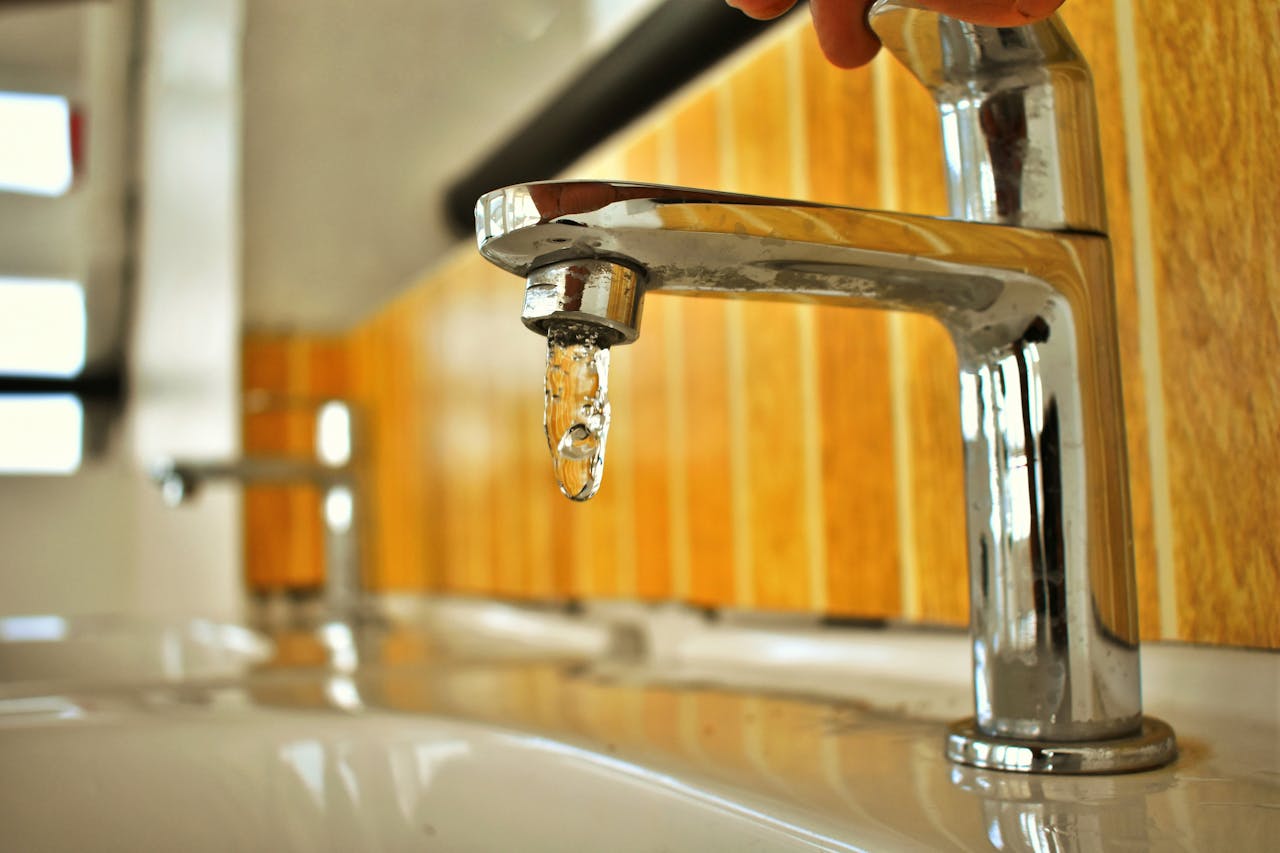When it comes to maintaining a home, plumbing issues can often take a backseat to more visible problems like leaky roofs or broken windows. Yet, the impact of grease and food waste on a plumbing system is profound and can lead to serious long-term consequences. Homeowners may not realize the significant harm that improper disposal of cooking grease and food remnants can inflict on pipes, leading to clogs, backflows, and even structural damage over time. With the right knowledge, these issues can be avoided, saving time and money in the long run.
Understanding the Nature of Grease
Grease is a byproduct of cooking that is often improperly disposed of down sinks or drains. Common sources of grease include fatty foods like bacon, cooking oils, and dairy products. When these substances enter the plumbing system, they begin to cool and solidify, adhering to the inside of pipes and creating stubborn clogs. Studies suggest that nearly 50% of all clogged drain calls are related to grease buildup. Over time, this build-up can restrict water flow, leading to excessive pressure that can rupture pipes. Regularly pouring hot water or using soap to dissolve grease is a misconception, as it only delays the inevitable clogging. Homeowners should consider alternative disposal methods, such as disposing of grease in sealed containers or composting biodegradable food waste.
Another issue with grease is that it doesn’t always clog pipes in the immediate vicinity. Often, it travels further down the line before solidifying, creating problems in areas that are harder to reach. This can make clogs more expensive and complicated to fix. Once a clog forms deep in the system, even professional plumbers may have difficulty locating and clearing the obstruction without extensive work. Preventing grease from ever entering the system is far easier than trying to fix the damage later on. Even more concerning is the fact that grease interacts with other waste materials in the system to form stubborn, tar-like compounds that can become rock-hard over time.
The Impact of Food Waste
Food waste can lead to similar plumbing issues as grease. When leftover food, especially fibrous or starchy substances, goes down the sink, it can combine with grease, creating dense clogs. Items like vegetables, pasta, and rice swell in water, making them harder to wash away. According to the Environmental Protection Agency, food waste constitutes approximately 22% of all municipal solid waste in the U.S. Wastewater treatment systems struggle to manage this influx, leading to increased treatment costs and overburdened facilities. Disposing of food waste through a garbage disposal might seem convenient, but these devices often can’t handle tough jobs. Many municipalities recommend composting or utilizing a yard waste bin for organic waste to minimize the chances of plumbing disasters.
Certain food items can damage the blades of garbage disposals, leading to mechanical failure. Bones, fruit pits, and fibrous vegetables like celery or corn husks are notorious for jamming the disposal or wrapping around its mechanisms. In addition to causing plumbing issues, this can lead to the need for costly appliance repair or replacement. Taking simple precautions, like scraping plates into the trash or compost bin instead of the sink, can help homeowners avoid these complications. Some food waste produces gases as it decomposes, which can result in foul odors in the kitchen or near sink drains. These smells are more than just unpleasant; they can indicate the buildup of organic material that may lead to bacterial growth or even small infestations of drain flies or gnats.
Signs of a Clogged System
Indicators of grease or food-related blockage often manifest early but are sometimes ignored by homeowners. Slow drains are a common warning sign. If water takes longer than usual to drain, it could indicate an early build-up of grease or food particles obstructing the flow. Other signs may include unpleasant odors emanating from the drains, gurgling sounds from the plumbing fixtures, or water backing up in sinks or tubs. Left unchecked, these issues can result in serious plumbing crises requiring professional intervention.
In some cases, toilets may begin to flush slowly or inconsistently if there is a clog in the main sewer line. This can be particularly concerning, as it might signal a blockage affecting the entire household system. Early detection and response can prevent these problems from escalating into emergencies. Routine checks and maintenance can play a key role in catching issues before they become critical. For homeowners, being attentive to even small changes in their plumbing system can make a significant difference.
The Dangers of Ignoring Plumbing Problems
Neglecting minor plumbing issues can lead to costly repairs in the long term. Clogs caused by grease and food waste can escalate to water damage in wall cavities and beneath the flooring. This may foster unhealthy mold growth, increasing health risks for residents. Water escaping from pipes can attract pests, leading to additional unpleasantness. The costs of repairing or replacing damaged drywall, flooring, and affected furniture can accumulate quickly, costing thousands of dollars. To avoid these situations, consider the importance of a functioning plumbing system and the steps that should be taken to maintain it. Understanding the responsibility of proper waste disposal is vital.
Water damage can affect a home’s foundation over time. Continuous leaks and moisture accumulation weaken structural components, resulting in cracks and potentially compromising the stability of the building. Insurance claims for water-related damage are among the most common in homeownership, and yet many could be avoided with proper waste management and regular maintenance. The peace of mind that comes with a well-maintained plumbing system is well worth the effort. In some extreme cases, families have had to vacate their homes due to black mold growth stemming from plumbing leaks. These situations affect physical health and mental well-being, causing stress and upheaval that could have been avoided with more careful plumbing practices.
Preventative Measures for Homeowners
Homeowners can take several simple actions to mitigate the risks associated with grease and food waste. Implementing effective disposal techniques is key. Setting aside a separate container for cooking oils and grease can prevent these substances from entering the drain. Installing strainers in sink drains can capture food particles. Cleaning sink traps and plumbing fixtures regularly can reduce buildup. Scheduling professional drain cleaning services can help maintain a clean plumbing system and ensure that hidden problems are detected early. Knowing that industry experts such as those at Zippy Plumber can assist with these services may encourage more proactive steps for homeowners worried about their plumbing. Maintaining a good relationship with plumbing professionals can be beneficial when issues arise.
In addition to physical interventions, education plays a crucial role. Homeowners should educate family members, especially children, about what should and shouldn’t go down the drain. Simple reminders, like keeping a grease jar next to the stove or putting up signs near the sink, can reinforce good habits. Over time, these practices become second nature, significantly reducing the likelihood of future plumbing issues. Routine inspections, particularly for older homes, can identify vulnerabilities in the plumbing infrastructure that might worsen with improper waste disposal. Upgrading to more modern plumbing systems or incorporating grease traps in high-use kitchens can provide an extra layer of protection.
Professional Assistance
Though minor issues can often be managed independently, some situations necessitate the expertise of professional plumbers. If clogs persist despite preventative measures, contacting a professional is wise. Plumbers can conduct thorough inspections to identify hidden problems that homeowners may overlook. They possess the tools and know-how to remove tough clogs that might present risks to a plumbing system. In instances of severe blockages or structural concerns, expert intervention is crucial. Professional drain cleaning services may include hydrojetting, which uses high-pressure water to clear stubborn obstructions. This resolves the immediate problem and helps ensure a clean, efficient plumbing system moving forward.
Professional plumbers can provide homeowners with assessments of their entire plumbing infrastructure. This can be particularly useful for older homes where outdated materials or designs might increase the risk of clogs and leaks. A comprehensive inspection allows for targeted upgrades, potentially extending the lifespan of the system and improving water efficiency. In some cases, plumbers can provide eco-friendly suggestions, such as enzyme-based drain cleaners, which maintain cleanliness without damaging pipes or the environment. Homeowners who invest in recurring maintenance services often find that the cost of regular service is significantly less than that of emergency plumbing repairs.
The Role of Municipal Systems
Individual homeowners aren’t the only ones affected by grease and food waste issues. Municipal waste management systems must handle the consequences of improper disposal through wastewater treatment plants. As more households contribute to the problem, facilities can become overloaded, leading to costly processing failures. Clogs in municipal sewer lines can place stress on the entire infrastructure, necessitating expensive repairs and affecting many residents. These problems can lead to untreated waste entering water bodies, raising public health concerns. Public awareness campaigns about responsible waste disposal are essential to mitigate these threats. Community involvement can significantly alleviate the burden on municipal systems.
Cities have started implementing “fatbergs” awareness campaigns, massive congealed lumps of fat and waste found in sewer systems, to highlight the seriousness of improper disposal. These blockages have required millions of dollars to remove and have disrupted citywide sewage operations. Collective action, such as proper disposal and the use of biodegradable products, is crucial in minimizing these municipal threats. Public utility departments often work closely with local environmental organizations to offer grease disposal stations or distribute free disposal containers. Participation in such initiatives can greatly reduce the occurrence of sewer backups and environmental contamination.
Environmental Implications
Ignoring plumbing problems related to grease and food waste doesn’t just impact homes; it has environmental repercussions. When water treatment facilities become overwhelmed with organic waste, they struggle to treat wastewater adequately before it’s released into ecosystems. This can lead to increased instances of water pollution, harming aquatic life, and disrupting ecosystems. Chemicals used in treatment processes may adversely impact the environment when overwhelmed. Composting food waste and properly managing grease can significantly reduce the amounts entering treatment facilities, benefiting both the environment and public health.
By diverting organic waste from water systems, communities can reduce their carbon footprints. Composting keeps harmful substances out of the sewage system and returns valuable nutrients to the soil, promoting sustainable agriculture. This dual benefit underscores the importance of integrating environmentally conscious behavior into daily routines. The presence of organic materials in wastewater can lead to elevated biological oxygen demand (BOD), which reduces oxygen available to fish and other aquatic life. This effect ripples through food chains and can eventually disrupt entire ecosystems. Responsible waste practices contribute to a healthier environment and more resilient communities.
Cost Considerations
The financial implications of neglecting grease and food waste issues can escalate quickly. Homeowners may initially consider simple disposals as cost-effective, yet the long-term costs of repairs and replacement can far exceed any savings. Time spent on maintenance and the inconvenience of emergency plumbing situations can add to lost time and productivity. Understanding these hidden costs can motivate residents to invest in preventative maintenance and responsible disposal practices. Calculating potential expenses provides clarity on why it’s important not to overlook these issues. Homeowners should stay mindful of the broader financial impact on their careers and overall quality of life.
It is often more affordable to install preventative equipment, like grease traps, or invest in routine professional maintenance, than to fund emergency interventions. Proactive steps yield long-term financial benefits, preserving property value and minimizing disruptions. When budgeting for home expenses, plumbing should be given equal weight alongside other major systems. Insurance premiums may even be affected by the frequency and severity of plumbing issues. Maintaining records of plumbing upkeep and preventative actions can serve as useful documentation when negotiating with insurance providers or filing claims.
Understanding the complexities surrounding grease and food waste disposal is crucial for maintaining a healthy plumbing system. Through proper waste management strategies, homeowners can prevent hazardous clogs and high repair costs. Ignoring the problem only leads to elevated risks, impacting both personal space and municipal infrastructure. Engaging professionals when necessary ensures timely interventions. Community awareness and responsible practices preserve plumbing and enrich the environment. With a little diligence, everyone can contribute to reducing the adverse effects on plumbing systems and associated environmental problems. By adopting smarter practices today, we pave the way for a more sustainable and cost-effective future.







Leave a Reply